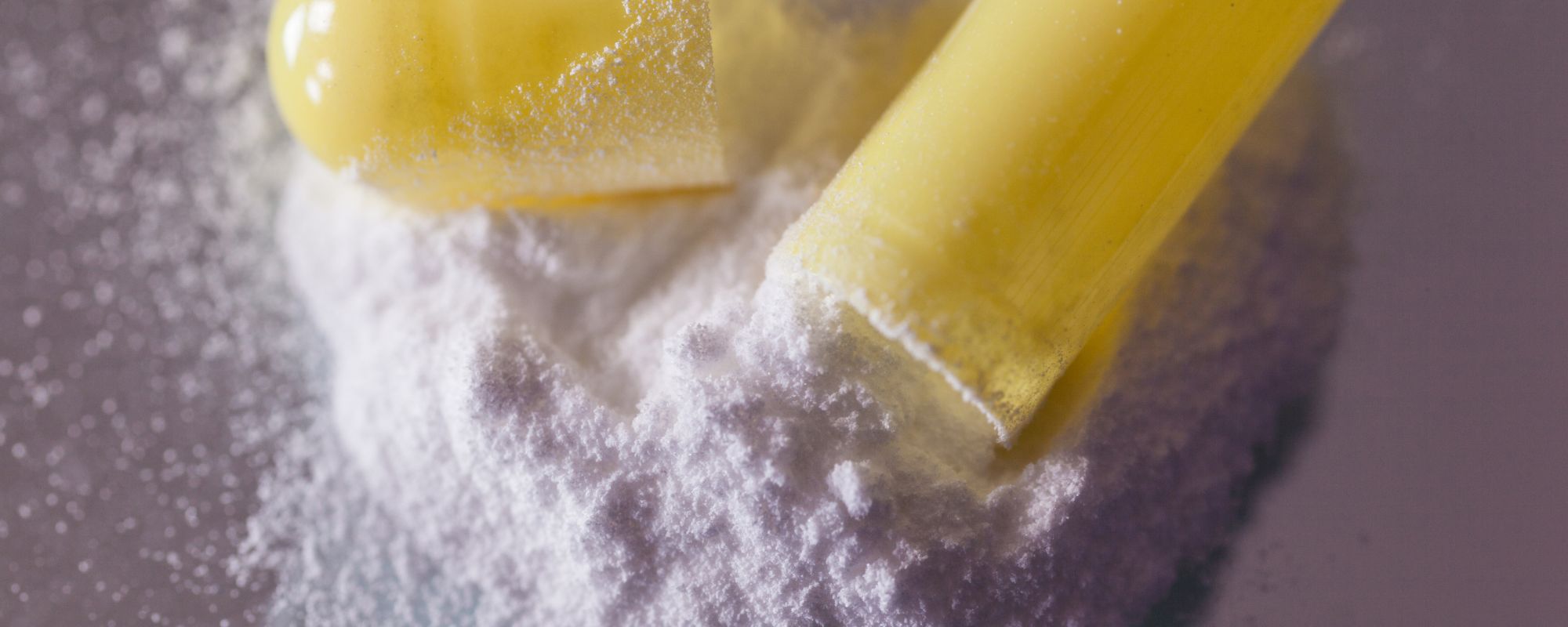Ketamine is a dissociative drug developed for use in surgeries. However, it is also a popular recreational drug and can be abused. Here is what you need to know about ketamine withdrawal symptoms.
What Is Ketamine?
Ketamine is a drug used largely to initiate and sustain anesthesia. It induces a trance-like state while also numbing pain. This makes it a common drug for surgeries, especially for brief operations. Because ketamine is not an opioid, it is especially useful when there are concerns about a patient’s respiration and circulation.
The medicine is often in the form of a white, crystalline powder. This is the most prevalent type used as a street drug. It can also be administered as a liquid, tablet, or nasal spray.
Ketamine has a variety of applications, notably as an anesthetic in surgery and, more recently, in lower dosages as a therapy for severe depression.
However, it’s also a popular street drug. It’s especially popular in the rave and club scenes among young adults.
When misused or taken recreationally, ketamine can lead to a range of risks, including psychological dependence. Some individuals who use ketamine frequently and in high doses may experience ketamine withdrawal symptoms if they suddenly stop using it. These withdrawal symptoms can include anxiety, depression, irritability, fatigue, and cravings. Unlike substances with severe physical withdrawal effects, ketamine withdrawal is usually more psychological, although it can still be distressing and challenging to manage.
Is Ketamine Addictive?
Yes, ketamine can be addictive, particularly when used frequently and in high doses outside of a medical context. While not typically physically addictive, ketamine ketamine can lead to psychological dependence due to its euphoric and dissociative effects.
For those who become dependent on ketamine, stopping use can lead to ketamine withdrawal symptoms, which are generally psychological rather than physical. These can include mood swings, anxiety, depression, and cravings, which can make it difficult for individuals to quit.
What Is Ketamine Withdrawal?
Ketamine withdrawal includes things like anxiety and depression, as well as some mild physical symptoms like sweating and fatigue.
In most cases, these symptoms lessen over time, usually within one to two weeks. However, emotional and psychological ketamine withdrawal symptoms may take longer to resolve, especially in cases where ketamine has been used to self-medicate underlying mental health conditions.
Physical Symptoms of Ketamine Withdrawal
Physical symptoms of ketamine withdrawal are usually limited and may include:
- Fatigue and low energy: People may feel unusually tired, with a lack of physical stamina.
- Sweating: Increased sweating, especially in the first few days of withdrawal.
- Tremors or muscle stiffness: Rare but can occur, usually in cases of heavy, prolonged use.
- Loss of appetite: A reduction in appetite or even mild nausea, which may improve after the first few days.
Physical symptoms of ketamine withdrawal exist but are usually quite mild and do not last long.
Psychological Symptoms of Ketamine Withdrawal
The psychological symptoms are often the most challenging aspect of ketamine withdrawal. These may include:
- Cravings: A strong desire to use ketamine again to alleviate withdrawal discomfort or recapture the euphoric effects.
- Anxiety: Increased feelings of worry or nervousness, often accompanied by restlessness.
- Depression: Feelings of sadness, hopelessness, or apathy, which can last for days or weeks, especially in cases of long-term use.
- Irritability: Heightened sensitivity and frustration, which can make it difficult to cope with minor stressors.
- Difficulty concentrating: A sense of mental fog or inability to focus, which can impact daily tasks and responsibilities.
- Vivid or unpleasant dreams: Some people experience vivid dreams or nightmares as they adjust to life without ketamine.
Get confidential help from our addiction treatment specialists in Orange County. Call to join our rehab program today!
Call 866-881-1184Ketamine Withdrawal Timeline
Ketamine withdrawal generally follows a timeline that varies based on the individual’s usage pattern, dosage, and duration of use. Since ketamine withdrawal symptoms are primarily psychological rather than physical, the timeline is often defined by stages that encompass different symptoms and intensities.
Here’s an overview of the typical stages and symptoms people may experience during ketamine withdrawal.
Acute Phase of Ketamine Withdrawal
In the initial withdrawal phase, the body and mind begin to react to the absence of ketamine. Symptoms emerge within 24 hours, gradually intensifying over the next day or two.
These include:
- Fatigue
- Sweating
- Slight Muscle Aches
- Irritability
- Anxiety
- Mood Swings
This phase typically lasts two to three days and may be more intense for heavy or long-term users.
Peak Stage of Ketamine Withdrawal
In the peak stage of ketamine withdrawal, psychological symptoms hit their highest intensity. Ketamine withdrawal symptoms here can include depression, strong cravings, anxiety, irritability, concentration issues, and nightmares.
Symptoms here usually last two to three days but could last up to a week.
Who Can Help with Ketamine Withdrawal?
If you or a loved one are seeking treatment for addiction, South Coast Behavioral Health is here to help. The first step in treating addiction is a medical detox. This means using drugs to manage withdrawal symptoms.
Our medical detox program in California is staffed by caring and compassionate professionals who can provide you with medications to manage your withdrawal symptoms.
At South Coast, we take pride in offering care that is closely tailored to specific issues. To that end, we offer gender-specific detox programs, with medical detox for men in Irvine, CA, and medical detox for women in Huntington Beach, CA.
After detoxing, proper treatment can begin.
Looking for quality substance abuse treatment that’s also affordable? South Coast accepts most major insurance providers. Get a free insurance benefits check now.
Check Your CoverageTreatment for substance abuse takes place along an entire spectrum of care. Along that entire spectrum are various behavioral therapies, support groups, and the use of medically-assisted treatment (MAT).
These levels of treatment are, in order, as follows:
Residential Treatment in California
After successfully completing medical detox, you’ll receive inpatient treatment in Orange County, California. There, you’ll receive medically-assisted treatment and dual diagnosis treatment to deal with any cravings or co-occurring mental health issues you may be battling.
We also offer residential treatment facilities in Costa Mesa, Irvine, and Huntington Beach for those who desire gender-specific treatment. There, patients get round-the-clock medical attention and monitoring while living at the institution full-time.
In addition to individual and group counseling and medication management, you’ll also have access to leisure activities and family support services.
Partial Hospitalization in California
Most clients start substance abuse treatment with South Coast in our residential treatment program. After completing that, many desire something that still provides structure and support but with extra space and time to oneself. For that, we offer Partial Hospitalization in Newport Beach.
A step down from inpatient care but with more structure than conventional outpatient programs, partial hospitalization offers a good balance for those looking to ease back into normal life. Clients can receive care five to seven days a week for a number of hours each day, returning back to their homes in the evening.
This way, they can recover without putting their daily lives completely on hold, receiving intense therapeutic interventions like group and individual therapy, skill development, and medication management as necessary.
Intensive Outpatient Treatment in California
For those leaving inpatient residential treatment or partial hospitalization, intensive outpatient programs (IOP) are yet another gradual step forward on the road to recovery.
With a focus on group therapy, individual counseling, and education, clients undergoing Intensive Outpatient Treatment in Newport Beach can meet three to five days a week. Each session lasts three hours.
This level of care requires the least amount of attendance at a facility.
Start Today
If you or a loved one are struggling with drug and alcohol detox but wonder how long drug rehab takes or have other questions, call us at 866-881-1184 or contact us here. Our highly qualified staff will be happy to help give you an idea of what to expect from your addiction recovery timeline, help verify your insurance, and assist with any other questions you may have.









